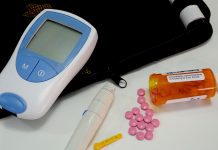NICE has recommended the anti-cancer drug Enhertu for earlier use
Hundreds more people are now eligible for the breast cancer drug Enhertu as NICE recommends for use in the disease’s early stages
This means NICE...
Over 5,200 people could benefit from new chronic lung disease recommendations
The National Institute of Health and Care Excellence (NICE) has recommended that nintedanib to treat chronic lung disease can be extended to more people....
Over 40,000 doses of Oxford’s Ebola vaccine heading to Uganda
University of Oxford’s Ebola vaccine has been manufactured by SII (Serum Institute of India) in just 60 days and doses shipped to Uganda.
Oxford’s Ebola vaccine...
New mRNA cancer vaccine significantly reduces disease
An mRNA cancer vaccine, developed by Moderna and Merck, demonstrated a statistically significant and clinically meaningful reduction in risk of disease recurrence or death.
The...
WHO warns that bacterial infections are becoming harder to treat
The World Health Organization (WHO) has reported that resistance to antibiotics is on the rise, making the treatment of bacterial infections more difficult.
According to...
Should patients choose their own type 2 diabetes medication?
A new study has suggested that patients should be put in charge of their own type 2 diabetes medication.
The Trimaster large-scale study is the...
Treating cognitive decline after cholestatic liver disease
Patients with cholestatic liver disease may develop neurological symptoms including fatigue and cognitive decline, for which there is currently no cure.
Cholestatic liver diseases such...
Re-examining the safety of fluoroquinolones
A review into the use of fluoroquinolones has found discrepancies in the safety data issued by regulatory bodies.
Fluoroquinolones are commonly prescribed family of antibiotics....
New Alzheimer’s drug Lecanemab shows promising results in trial
A new clinical trial for lecanemab reveals positive results for the future of Alzheimer’s disease treatment.
Study results presented at the 15th Clinical Trials on Alzheimer’s...
Blood thinning medication does not help COVID-19 recovery
Blood thinning medication does not help patients recovering from COVID-19, despite being offered to patients, according to research from the University of Cambridge.
Over 1,000...
High-precision medicine can improve treatment for ovarian cancer
An international team of researchers have found that high-precision medicines can be used in oncology, allowing for better treatment for ovarian cancer.
Mutations of BRCA1...
New life-extending treatment recommended for rare gastroesophageal cancer
Around 3,000 people could be eligible for a new life-extending combination therapy to treat rare forms of gastroesophageal cancer.
Gastroesophageal cancer, also known as gastroesophageal...
NICE approve mobocertinib to treat aggressive lung cancer
Around 100 people will benefit from mobocertinib, a new treatment for rare and aggressive lung cancer after NICE published its final guidance on recommending...
Lisdexamfetamine is the safest medication for people with drug addiction
Lisdexamfetamine, a medication for ADHD, has the lowest risk of hospitalisation and death in people with amphetamine addiction, according to research from Karolinska Institutet...
The bacteria behind leprosy disease could regenerate livers
In a groundbreaking discovery, researchers have found that parasites behind leprosy disease can reprogramme cells to increase the size of a liver.
The latest findings...
A potential new type 1 diabetes medication has been discovered
A new type 1 diabetes medication could prevent the disease by inhibiting a gene associated with the onset of the disease, according to the...
A new treatment for lung cancer has been identified
Researchers have identified a potential new treatment for lung cancer, which could also aid early detection of the disease.
Scientists investigating the mechanics of the...
Sustainable health system innovation in the medical cold chain
With a portfolio of medical refrigeration devices boasting green credentials, B Medical Systems is providing robust cold chain solutions for sustainable health systems.
Sustainability is...
Anti-cholesterol and diabetes drugs may reduce the risk of eye disease
Regularly taking anti-cholesterol and diabetes drugs may lessen the risk of degenerative eye disease associated with ageing, according to new research.
Findings from a pooled...
Bivalirudin is the safest treatment for percutaneous coronary intervention
Researchers have found that bivalirudin is a safer and more effective anticoagulant than heparin for treating percutaneous coronary intervention patients.
The researchers found that heart...




























